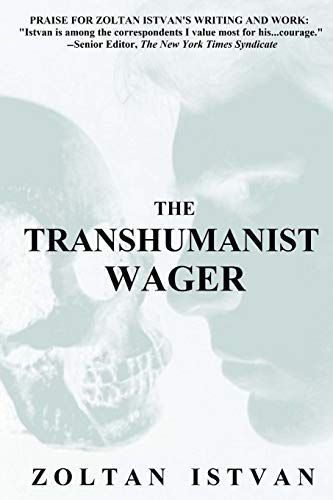
The Transhumanist Wager
Philosopher, entrepreneur, and former National Geographic and New York Times correspondent Zoltan Istvan presents his visionary novel, The Transhumanist Wager, as a seminal statement of our times. Scorned by over 500 publishers and literary agents around the world, his philosophical thriller has been called "revolutionary" and "socially dangerous" by readers, scholars, and religious authorities. The novel debuts a challenging original philosophy, which rebuffs modern civilization by inviting the end of the human species-and declaring the onset of something greater. Set in the present day, the novel tells the story of transhumanist Jethro Knights and his unwavering quest for immortality via science and technology. Fighting against him are fanatical religious groups, economically depressed governments, and mystic Zoe Bach: a dazzling trauma surgeon and the love of his life, whose belief in spirituality and the afterlife is absolute. Exiled from America and reeling from personal tragedy, Knights forges a new nation of willing scientists on the world's largest seasteading project, Transhumania. When the world declares war against the floating city, demanding an end to its renegade and godless transhuman experiments and ambitions, Knights strikes back, leaving the planet forever changed.
Reviews
DJ@defluo